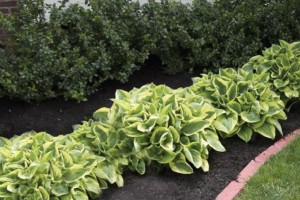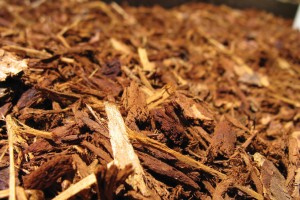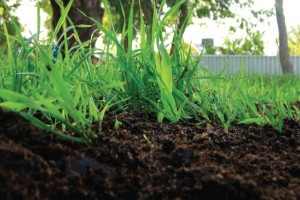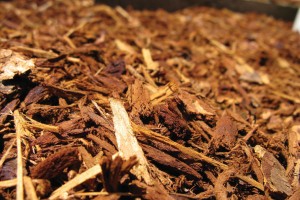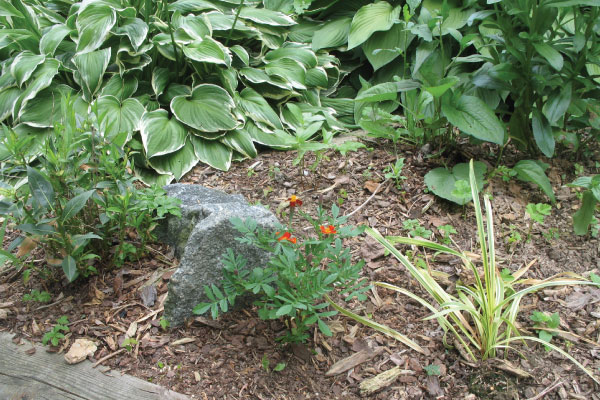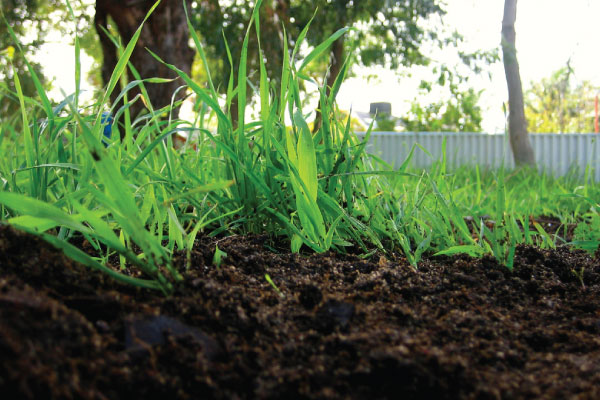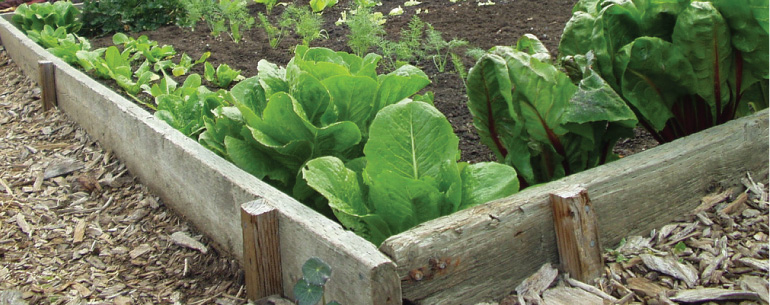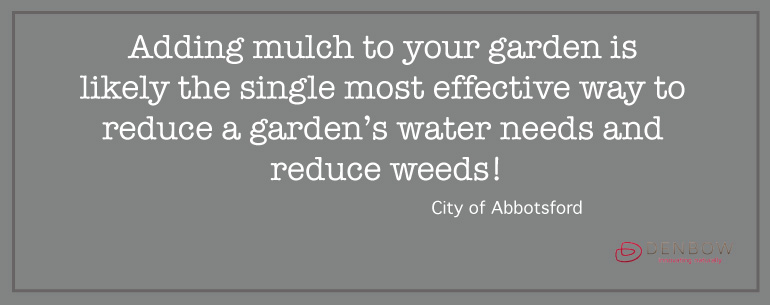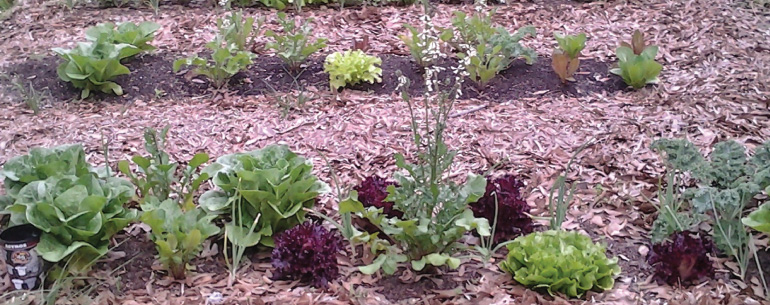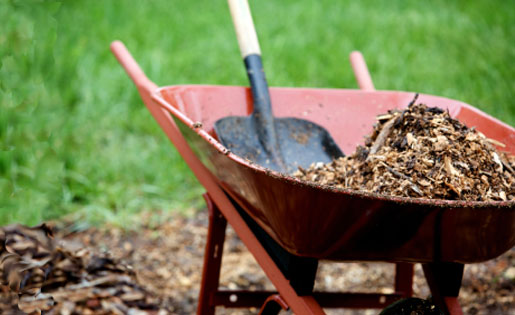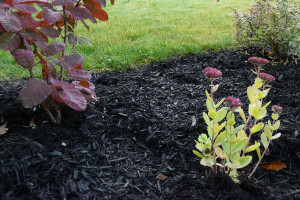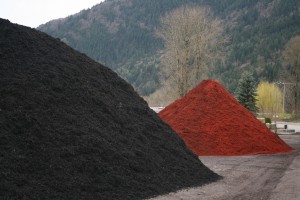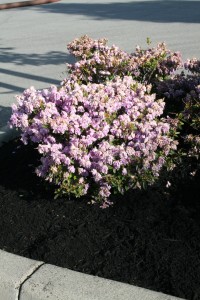7 Habits of Successful Waterers
“I am not trying to be a bad waterer, I just don’t think I fully get how to be a good waterer.”
If you identify with that statement, this article may be for you.
The single most important resource in landscape care is water. In varying degree all plants need water to survive and thrive. So much time, money, and frustration can be saved with just a little attention toward proper watering practices. The excuses for not watering are as numerous as the day is long and we’ve heard them all.
Though strategic placement of landscape mulch in garden areas and around trees, shrubs and flower beds will prolong moisture retention of the soil, a consistent watering regime is still needed. The basic fact is that without water – or with too much – all life fails. It’s a simple biological fact.
You can be sure that if you practice the following seven habits religiously, you’ll see a definite improvement in the health and vigor of your plants. These habits will enable you to:
- use less water
- keeps you in touch with your plants
- turn watering into a calming activity rather than a stressful task
Read on for the full article:
The single most important resource in landscape care is water. In varying degree all plants need water to survive and thrive. So it stands to reason that my single biggest frustration as a landscape professional is convincing landscape owners to pay attention to watering. So much time, money, and frustration can be saved with just a little attention toward proper watering practices.
The excuses for not watering are as numerous as the day is long and I’ve heard them all. I can tell you from experience that none of them is valid, especially if you’re a shrub, tree, or other plant struggling to get a drink of water to survive. While all this may sound a little harsh, the basic fact is that without water – or with too much – all life fails. It’s a simple biological fact.
Just recently I was discussing watering with a long-time client whom I’m after every year to water more. I finally said, “You know I love you, but you are a terrible waterer.” Her response was priceless. She paused, gave me a long, low “hmmmm” and said, “Yes, I know, but maybe that is something you can help me with. I mean, I am not trying to be a bad waterer, I just don’t think I fully get how to be a good waterer.”
 John Lysak dutifully watering new annuals planted for a splash of summer color.
John Lysak dutifully watering new annuals planted for a splash of summer color.
That made me think, “she certainly isn’t the only bad waterer; how can I help people wrestling with how much – or how little – to water?” So, at my client’s urging, I came up with these “Seven Habits for Successful Watering.” I promise you that if you practice these seven habits religiously, you’ll see a definite improvement in the health and vigor of your plants:
- Visit your plants regularly
Seriously, get to know your plants and your landscape intimately. Some areas are high and hot, other low and wet, still others feature trees and shade, while some might be wide open and exposed to the drying sun. All have different watering needs. You can’t truly know this if you don’t visit them. I take a walk every day after work as a way to decompress from the day, check in to see what is in bloom, and tend to the occasional weed patch. Yes, I am a professional…and I still find weeds in my garden!!
- Touch the soil often
Nothing provides accurate information like engaging your senses. All soils are different – do you know what types of soil you have? Is it sandy and dry? Soft and moist? Do you know if it holds water well or does it just run right through? These things matter. Get your hands in the soil and know for sure. Something as simple as seeing some wilt and then scratching at the soil at the base of the plant may tell you if that wilt is from being over dry or over wet.
- Watch the water
You can water all day long, but that’s never a good idea – it’s wasteful and counter-productive. In fact, the single biggest waste of water and cause of pollution is run-off from unmonitored watering.
If you watch water carefully, you’ll notice that at first it runs off dry soil until you achieve some saturation. Then, once fully saturated, water simply runs right through. What’s the lesson here? More is not better. You want to water just enough to enable it to soak in, and sometimes that requires a little help.
Try watering very lightly for a longer period of time. Or perhaps create a little well to hold the water and encourage it to sink in rather than run off. Try wetting the top soil, then brush it away with your hands to see how far it sunk in. Just imagine that old dry sponge at the kitchen sink – it takes a moment for the water to break that dry seal before the sponge will accept the water – same with over dry soils.
- Watch the weather
This may come as a surprise, but plants sweat just like people. Well, not exactly the same. While people have sweat glands, plants have stomata – tiny pores that dot the plant’s surfaces. Stomata enable the plant to rid itself of excess water through transpiration – a process that removes through evaporation as much as 97-99 percent of the water taken up by its roots.
Weather, then, affects transpiration just like sweating. The hotter the nights, the more plants transpire. Heat and humidity make plants “sweat” through their leaves, drying them out and putting them at risk if water isn’t replaced in a timely and efficient manner. For example, some plants love misting while others hate it.
Knowing your plants and what they like is important, just like understanding the local weather and environmental conditions. Generally speaking, we don’t need to do much watering in New England in April or May, but by the time we hit June, soils are drying up, the rains are slowing down, and plants could likely use a good drink.
- Frequency and duration
Not all plants need the same duration or frequency of watering. If you practice habits 1-4, you’ll be able to accurately gauge how much water your plants will need to stay happy and healthy. Almost all plant resource books and websites that give you plant data will suggest what a plant likes – moist soil, dry soil, loamy soil, sandy soil – these “likes” correlate with water needs. Moist and loamy soils will indicate an affinity for regular “dampness” in the soil. Dry and sandy soil lovers will be okay with periods of dry out.
- Adjust your irrigation system
Many landscapes benefit from irrigation systems, but it’s important to test and adjust them. One of the biggest issues with irrigation systems is the “set it and forget it” mindset. Many landscape owners simply set the automatic watering timer and then assume that will take care of things. But no single setting will deliver the proper amount of water throughout the three distinctly different New England growing seasons. Without making seasonal adjustments, you’re guaranteed of over-and under-watering throughout the year.
Here is something to keep in mind; in the springtime, the plant “juices” are flowing upwards from the soil to the tip tops of the trees. The plants are pulling energy, liquids, and nourishment up from their roots and pushing out new spring growth. If you envision having a cool glass of water and using a straw to pull up a refreshing drink…that is not much different than what the plants are doing. So all the trees (effectively the biggest straws) are pulling water out of the soil with great force. Rain replenishes some, but as you all know, one 80-degree day and you can feel super parched, super fast. Same goes for plants and the big ones can take up the resource faster than the little ones.
- Make watering easy
Nobody likes doing things that are difficult or frustrating. Consider turning what could be a chore into a relaxing and enjoyable experience by making the task easy!
I am a firm believer in point-of-contact watering. That’s the fancy term for using a hose or a watering can to water the ONE plant that needs it. If you have one operational spigot in your landscape you can be sure that watering won’t happen. The WORST two tasks of gardening in my opinion are dragging and coiling heavy, dirty hoses. I confess I have watched a plant suffer and die before I got around to dragging a hose out to rescue it.
Now I have a “free-line” on my irrigation system and spigots that are placed roughly every 75 to 80 feet throughout my 2.5-acre landscape. I keep a 100-foot hose coiled in several of the location and I can easily access water whenever and wherever I want.
My approach is to run the irrigation system to provide a steady moisture level — not overwatering or creating run-off. I walk my landscape every day and when a plant needs water, I grab the hose or fill a watering can and spot-water right where it’s needed. This uses less water and keeps me in touch with my plants. And, as hokey as this may sound, it provides a wonderful way to meditate and unwind from my day. Watering has turned into a calming activity rather than a stressful task.
Now don’t you feel like getting out there and watering?
The original article was posted on theGardenContinuum.com – 7 Habits of Successful Waterers.

